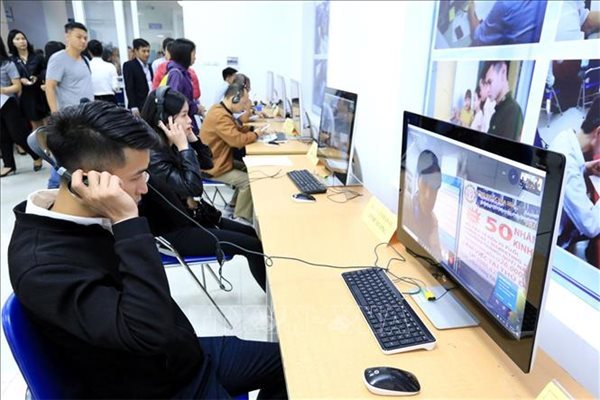CB Insight, the company that builds software thatvpredicts new technology trends, reports that the failure rate of startups globally is between 75 percent and 90 percent. Startup bankruptcies in locations such as Silicon Valley in the US have occurred regularly.

In Vietnam, the units that support startup activities reported that 80 percent of startups exist for no more than two years, and only 3 percent succeed.
Analysts say that in emerging markets or startup nations, the regular establishment and bankruptcies of startups is common.
Meanwhile, the Covid-19 pandemic has had a big impact, affecting the cash flow of businesses, pushing them into crisis.
Su Ngoc Khuong, investment director of Savills Vietnam, said that Vietnam’s economic growth over the last five years has impressed the region and the world. Small and medium enterprises (SMEs), which account for 75-80 percent of total enterprises, are considered the backbone of the economy.
However, while many new businesses have been established, many others have gone bankrupt. The bankruptcy/establishment ratio is 45/55, which means that for every 45 businesses bankrupt, 55 new businesses are set up.
“Investors set up companies because of many reasons, including passion and desire to run a business, but not all entrepreneurs have sufficient financial resources and experience to succeed,” Khuong said.
| While many new businesses have been established, many others have gone bankrupt. The bankruptcy/establishment ratio is 45/55, which means that for every 45 businesses bankrupt, 55 new businesses are set up. |
Sharing the same view, Do Hoai Nam, an investor, said it’s normal for a startup to fail and close down. The success of startups depends on whether entrepreneurs have enough conditions. And luck is also an important factor.
Pham Ngoc Huy, an expert on startups, noted that local businesses tend to start companies in the fields of agriculture, handicrafts and traditional cultural products which use local materials.
However, more than 90 percent of them operate under the traditional business model, with no renovations in products or use of high technology.
Being too self-confident is cited as a mistake of many startups. Loic Gautier, a co-founder of Lefair, said he sometimes was too confident, which made people doubt the company’s development capability and additional value. He tried to prove that people were wrong and that they should not doubt his business.
Asked about his regrets, he said that he had set up a business when he lacked plentiful capital. Many people only start a business after gaining certain success and financial independence.
Alain Goudsmet, president of Mentally Fit, said a startup will succeed when its founder has clear mission and lives with the core value of the products he or she creates.
Thu Ky

Vietnam startups share ‘IPO dream’
Having an IPO (initial public offering) is an unfulfilled dream for startups because they are all incurring losses, experts said.

Startups’ IPO plans may be delayed for several years because of COVID-19
For startups, growing enough to become a public company through an IPO (initial public offering) is an important goal, reported Saigon Economic Times